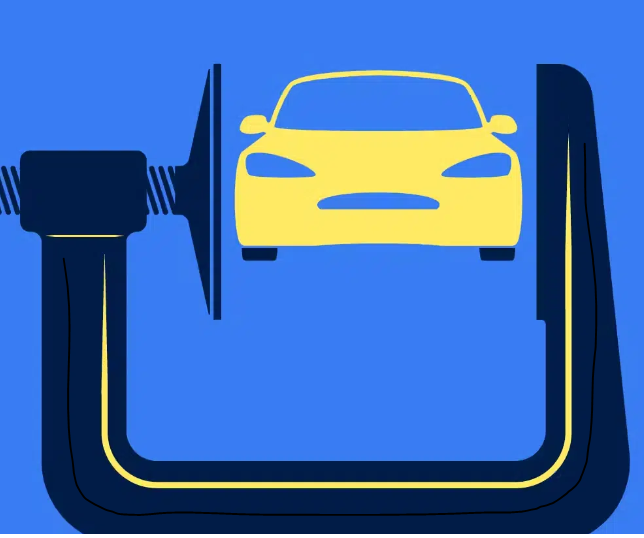When it comes to financing a vehicle, short-term car loans are often seen as a quick and effective way to get a car without being tied down by debt for too long. While they offer several advantages, they also come with their own set of drawbacks. Understanding the pros and cons of a short-term car loan is crucial to determining whether it’s the right choice for your financial situation.
What is a Short-Term Car Loan?
A short-term car loan typically refers to a loan with a repayment period of 36 months or less, as opposed to the more common long-term loans that can stretch to 60, 72, or even 84 months. With shorter loan terms, you commit to paying off your vehicle faster, often with higher monthly payments but less overall interest paid. The length of the loan directly impacts the total amount of interest you’ll pay, making it an important factor in your financial planning.
Benefits of Short-Term Car Loans
- Lower Total Interest Paid
One of the primary advantages of a short-term car loan is the reduced interest paid over the life of the loan. Since you’re paying off the loan in a shorter amount of time, the lender has less time to accrue interest on the remaining balance. This means that although your monthly payments may be higher, you’ll ultimately pay less in interest compared to longer-term loans. If you’re looking to save money in the long run, short-term car loans can be a smart choice.
- Faster Loan Repayment
With a short-term car loan, you’ll pay off your car much faster than with a long-term loan. If you want to become debt-free sooner and avoid being tied to payments for years, this is a major advantage. Many people prefer the feeling of financial freedom that comes with clearing a loan quickly. Plus, once the loan is paid off, you can redirect those monthly payments toward other financial goals, such as saving for retirement or investing.
- Lower Risk of Owing More Than Your Car is Worth
In the case of long-term loans, especially those with longer terms like 72 or 84 months, you run the risk of owing more than your car is worth, known as being “upside down” on the loan. This is particularly concerning if your car’s value depreciates faster than you’re paying down the loan. With a short-term car loan, you’ll have a better chance of staying ahead of depreciation, ensuring that your car’s value aligns more closely with your remaining balance.
Drawbacks of Short-Term Car Loans
- Higher Monthly Payments
While a short-term car loan can save you money in the long run, it also comes with higher monthly payments. Since you are paying off the car faster, the amount you owe each month will likely be significantly higher than with a longer-term loan. This can put a strain on your monthly budget, particularly if you have other expenses or financial obligations. For people with tight budgets or those who want to keep their monthly expenses lower, this could be a significant downside.
- Strain on Your Budget
The increased monthly payment associated with a short-term loan can lead to financial stress, especially if your income is irregular or you have other large expenses. The higher payments can limit your ability to save or invest, and in some cases, it could even lead to missed payments or defaulting on the loan. If you’re not sure whether you can comfortably manage the higher payments, it may be better to opt for a longer loan term with lower monthly payments.
- Limited Options for High-Priced Cars
If you’re purchasing a higher-priced vehicle, a short-term car loan might not be feasible due to the high monthly payments. Luxury cars or trucks with a significant price tag may require longer loan terms to make them affordable. While short-term car loans are ideal for more budget-friendly vehicles, they may not be the best fit for high-end models, unless you have a substantial down payment to reduce the loan amount.
Who Should Consider a Short-Term Car Loan?
Short-term car loans are an excellent option for individuals who have a stable and sufficient income, are looking to pay off their car quickly, and want to save money on interest. If you can afford higher monthly payments without sacrificing your financial well-being, a short-term loan could be a great way to save on interest and reduce debt faster.
Additionally, short-term loans are ideal for those who are buying an affordable car or who want to avoid the risk of being upside down on their loan. If you’re financing a lower-cost car that doesn’t require a significant loan amount, you may find the shorter term and higher payments more manageable. For those with a solid financial cushion and a strong commitment to paying off their debt, short-term car loans offer clear advantages.
When Should You Avoid a Short-Term Car Loan?
If you have limited disposable income or if a higher monthly payment would cause financial strain, a short-term loan may not be the best choice. Similarly, if you’re purchasing an expensive vehicle, the larger loan amount may make the high payments difficult to manage. Short-term car loans are best suited for people with stable financial situations who want to minimize their total loan cost and who can comfortably handle the increased monthly payments.
Conclusion
When deciding between a short-term car loan and a longer-term loan, it’s essential to weigh the benefits and drawbacks based on your personal financial situation. While short-term car loans can save you money on interest and help you pay off your car quickly, they also come with the challenge of higher monthly payments. If you have a solid income, minimal debt, and a budget that can absorb the larger payments, a short-term loan can be a wise choice. However, if the higher payments would cause stress, you may want to consider a longer loan term with lower monthly payments. Ultimately, the best option will depend on your financial goals and ability to manage your loan payments comfortably.


